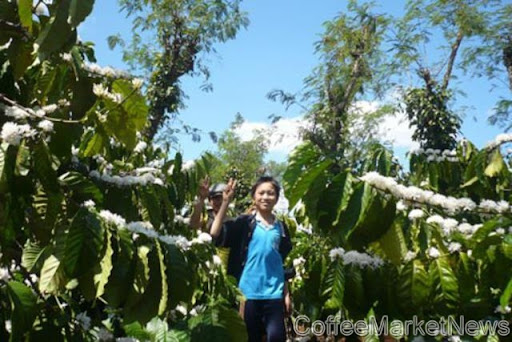 (VOV) - One of the challenges facing Vietnam’s coffee sector is the weak alliance between businesses.
(VOV) - One of the challenges facing Vietnam’s coffee sector is the weak alliance between businesses.
Vietnamese coffee is expected to be a key export product which will achieve the highest export turnover for Vietnam as a whole.
However, there still remain challenges such as the tough competition in the world market, and the overstretch of cultivated areas.
A VOV reporter interviewed Nguyen Van An, President of the Thai Hoa Corporation, about the challenges facing Vietnam’s coffee sector.
VOV: What is the current situation of the domestic coffee market?
Mr. An: Coffee is transacted at a very high price of VND42-46 million per tonne. So, businesses find it difficult to buy coffee from farmers because many of them are stockpiling coffee in the hope of selling at higher prices.
VOV: Vietnam’s Robusta coffee is said to fetch a rather high price this year. What’s your opinion about that?
Mr. An: In London and New York markets, Vietnam’s Robusta coffee is sold at US$2,250 per tonne, much cheaper than Arabica coffee, which is transacted at US$5,600 per tonne. The prices of Robusta coffee will be higher if businesses make a better compromise.
VOV: Are there any improvements in the quality of coffee in Lam Dong, the country’s second biggest coffee producer?
Mr. An: When we started to invest in a new processing technology, the number of farmers harvesting ripe coffee was estimated at 90 percent. However, it dropped to 75 percent in the last two years due to the fluctuations in the domestic market. There are now 20 coffee-processing factories in the province and all of them are racing against time to buy coffee from farmers.
We have proposed that the Ministry of Agriculture and Rural Development and the Prime Minister issue a decision on conditional coffee business in order to improve the quality of Vietnamese coffee products.
VOV: Are three any snags in coffee export business?
Mr. An: The biggest problem is lack of capital as most of it comes from short-term bank loans. Businesses cannot stockpile coffee until the end of the crop when the price of coffee often goes up.
As part of the Government’s effort to control inflation, the credit limit for domestic businesses remained unchanged in the first quarter of 2011 while foreign direct investment (FDI) enterprises have taken advantage of the situation to buy nearly 400,000 tonnes of coffee at only VND32-.38 million per tonne. When the credit policy is loosening, Vietnamese businesses have to buy coffee at much higher prices to fulfill their export contracts.
The weak alliance between businesses is a stumbling block in the development of the sector. Although the Vietnam Coffee Association and the Club of Coffee Exporters have tried to unite business operations, increase the real value of coffee, and support farmers, most members tend to do their own ways.
VOV: What about the prospect of coffee exports in 2011 compared to previous years?
Mr. An: Most noticeable is the appearance of powerful FDI enterprises which can buy coffee when the prices are very low. Vietnamese businesses, therefore, are finding themselves at a disadvantage on their own turf.
VOV: Many domestic businesses consider FDI enterprises a thorn in their flesh. However, many think that it is a good chance for the development of strong Vietnamese businesses and the coffee sector in general. Do you think so?
Mr. An: In my opinion, the attraction of FDI investment, particularly in the coffee-processing industry, will provide fresh impetus for the national economy with a focus on instant, ground, and roasted coffee products. Vietnamese businesses are planning to raise their semi-processing capacity to 1.2 million tonnes per year, much higher than Vietnam’s current coffee output. So it is not a good idea when foreign enterprises enter the fray.
VOV: At a recent seminar, Dr. Le Xuan Ba, Director of the Central Institute for Economic Management, insisted on the need for equal treatment of domestic and foreign businesses and in-depth investment to iron out snags. What is your opinion?
Mr. An: Obviously it is quite important to invest in coffee processing. However, there remain a lot of difficulties for businesses. Firstly, it is not easy to find financial support for in-depth investment because most bank loans are for a short term. We have invested as much as VND500 billion in an assembly line to produce instant coffee but its capacity is just only 2,000 tonnes per year.
More over, it takes coffee businesses a lot of time to find a potential export market for their finished products.
VOV: What do you think about the alliance between key coffee-growing areas?
Mr. An: The establishment of the alliance is our initiative and we are keen to support and encourage the setting up of farm co-operatives in order to ensure the adequate supply of coffee for processing.
VOV: Thank you very much!
(Source: http://english.vovnews.vn/Home/How-to-come-up-smelling-of-coffee/20113/124665.vov)

No comments:
Post a Comment